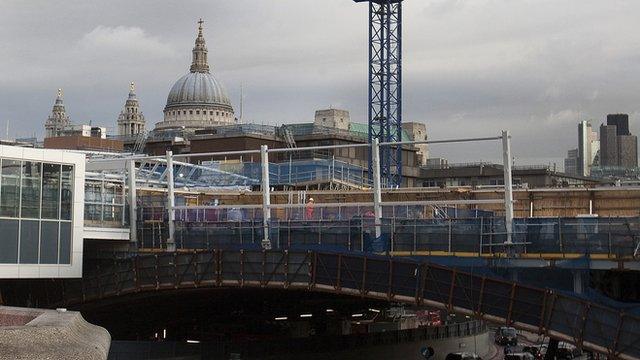First new Thameslink train arrives at Three Bridges depot
- Published
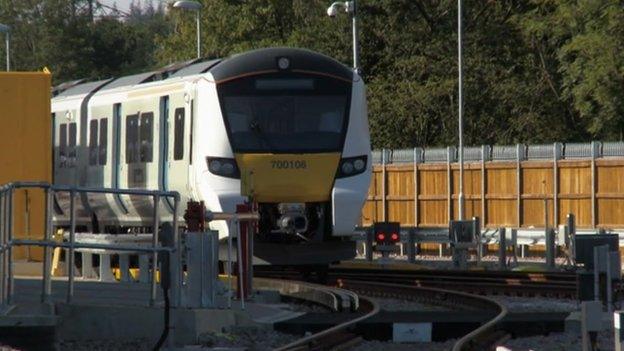
The first of the new Class 700 Desiro City fleet has arrived at Three Bridges depot in West Sussex
The first of 115 new trains for the Thameslink network has arrived in West Sussex to begin tests.
The Class 700 Desiro City fleet is intended to ease overcrowding on the north-south route from Bedford to Brighton through central London.
Initial testing will be carried out at Three Bridges depot, then on the Brighton line before the train carries the first passengers next spring.
Thameslink said the new trains would transform the service for passengers.
The Class 700 trains will each have 12 carriages, instead of eight on many of the existing Thameslink services.
An extra 1,000 rush hour seats are promised between Brighton and London and 80% more peak seats across between Blackfriars and St Pancras in central London.
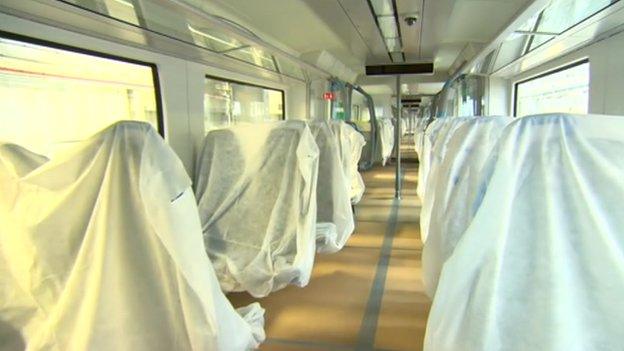
The new trains will have wider aisles and doorways to allow passengers to move around more quickly
"The doors can open far more widely and people can get on and off the train more quickly, which means it can depart punctually," said Ruth Humphrey, project manager for Siemens which is building the trains in Germany.
All the new trains will be in use by 2018.
As well as the current Thameslink network and the Wimbledon Loop, they will be deployed across new routes from 2017 as part of £6.5bn Thameslink improvements currently under way.
Meanwhile, Chancellor George Osborne has said he is committed to a full study into building a second main line from Brighton to London (BML2).
The government has already said it will provide £100,000 for a new study into the reopening of the Lewes to Uckfield line in East Sussex.
In a letter to Conservative MP for Lewes Maria Caufield, Mr Osborne said he had extended the Lewes to Uckfield study, which would now also look at improving links between London and the south coast, including a feasibility study on BML2.
- Published28 January 2014
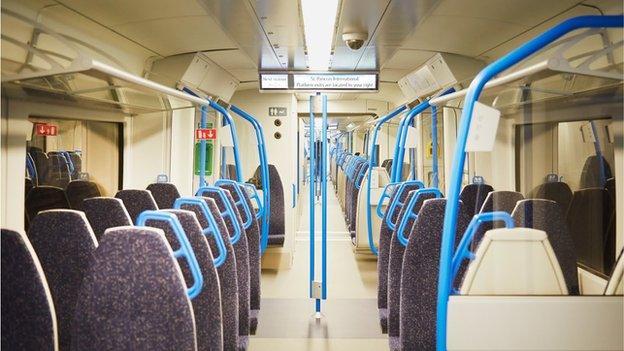
- Published21 January 2014
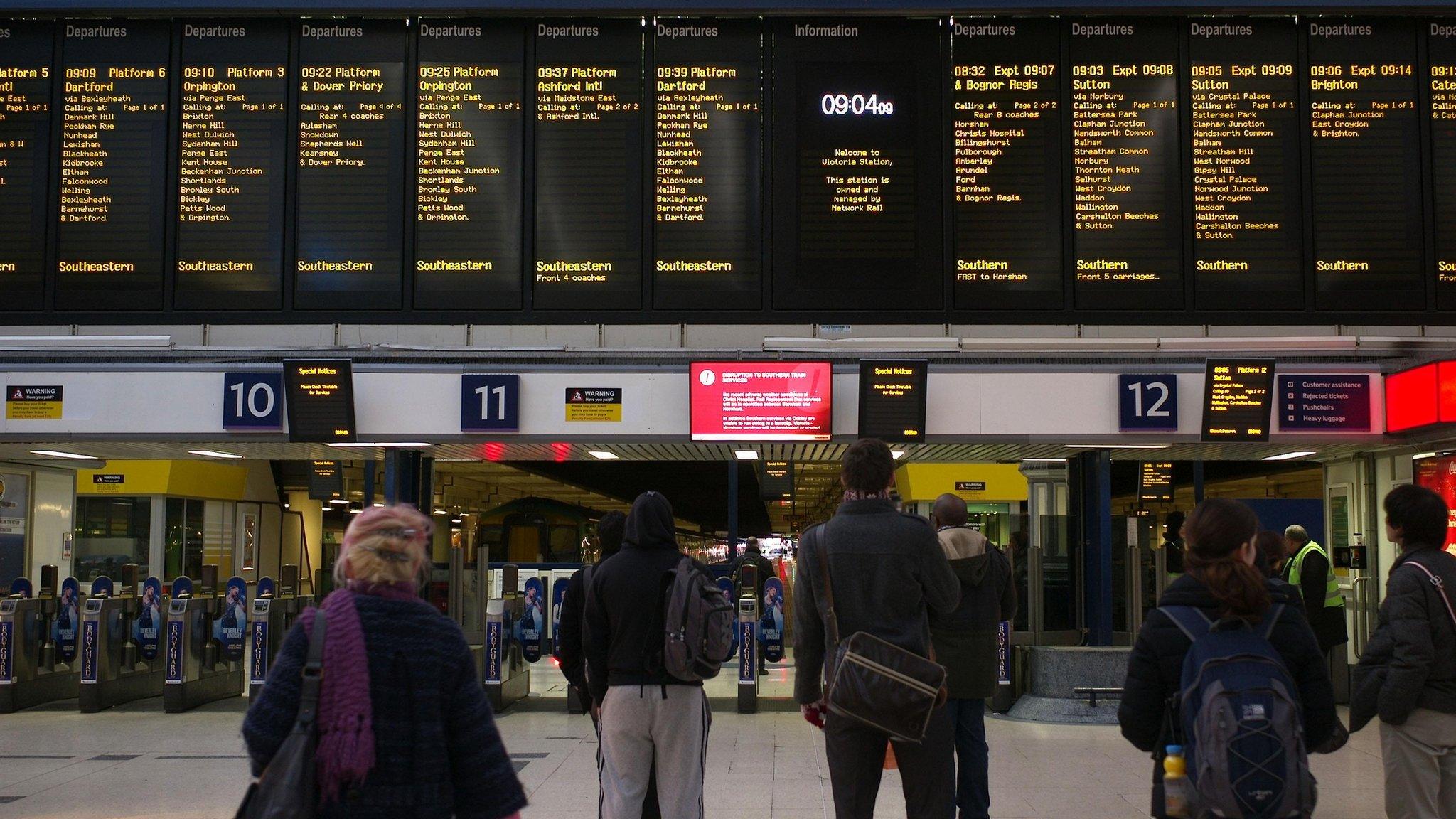
- Published29 October 2013
